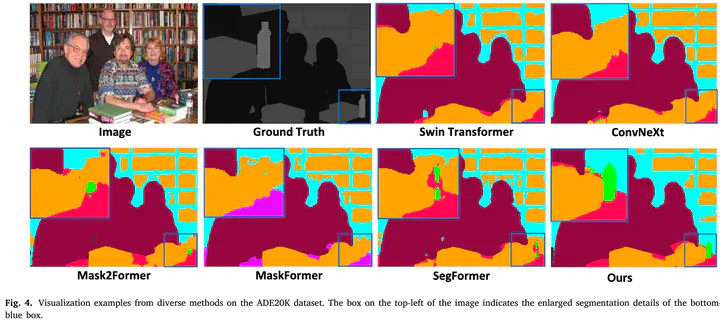Attention-Based Multi-Kernelized and Boundary-Aware Network for image semantic segmentation

Abstract
Recent studies have witnessed the prosperity of image semantic segmentation brought by deep learning technology, including the integration of diverse network structures, attention mechanisms, and even boundary perception. Essentially, the main challenge of semantic segmentation lies in how to incorporate and align more information like contexts and details in the feature representation enabling the network to better distinguish and recognize objects in an image for improved semantic understanding. To this end, we propose a novel end-to-end deep framework termed Attention-Based Multi-Kernelized and Boundary-Aware Network to enhance the semantic segmentation performance. Specifically, the proposed network enables thoroughly exploring and engaging the multi-kernelized contextual information with high-frequency boundary information by applying novel modules of Multi-Kernelized Spatial Attention and Boundary-Aware Hybrid Attention, aiming to enhance the segmentation result with more comprehensive feature representation capability. Extensive experiments further consolidate the superiority of the proposed network with improved segmentation results with the mIoU of 51.1% and 82.9% on ADE20K and Cityscapes datasets, as well as classification results with Top-1 accuracy of 84.0% on ImageNet-1K dataset against competitive baselines.